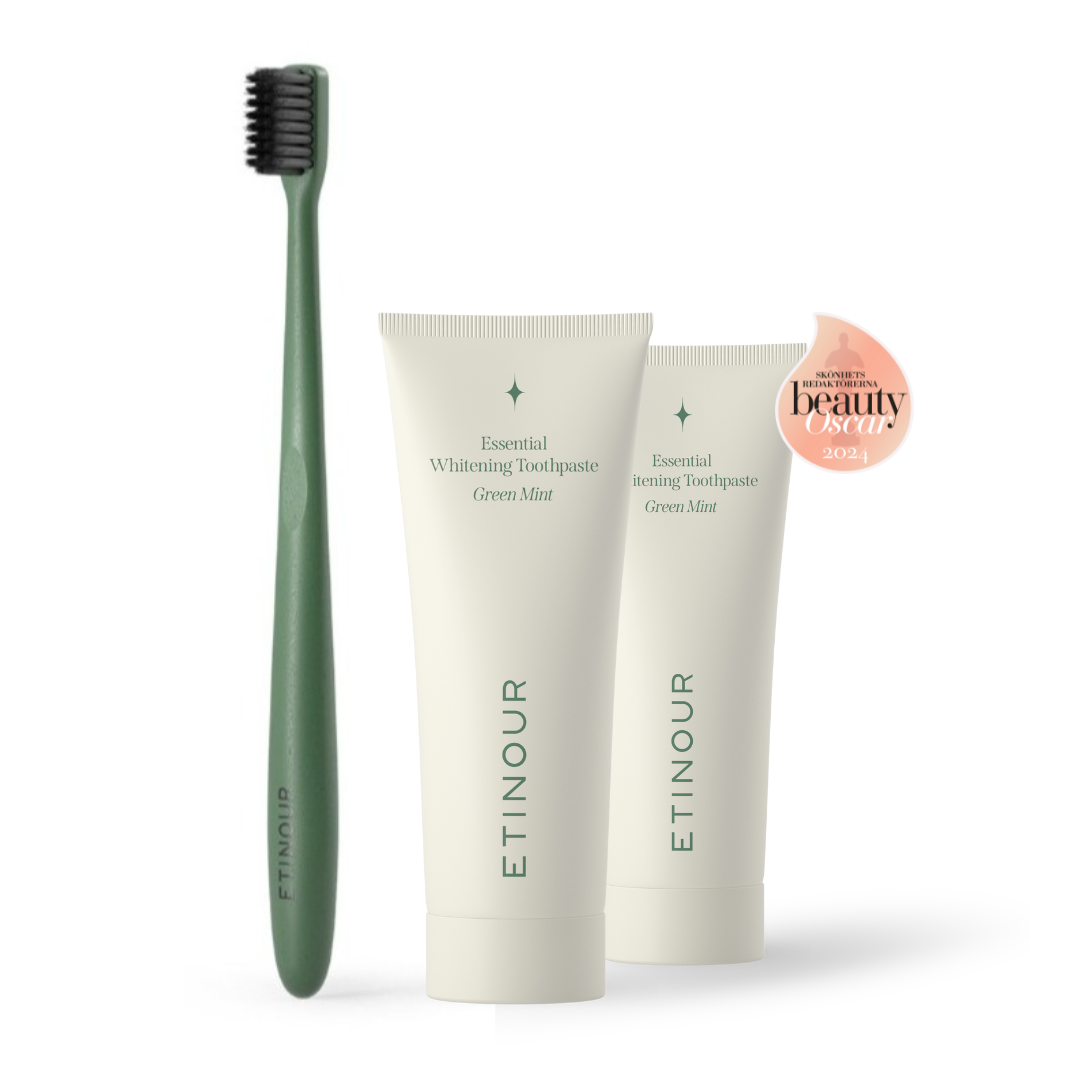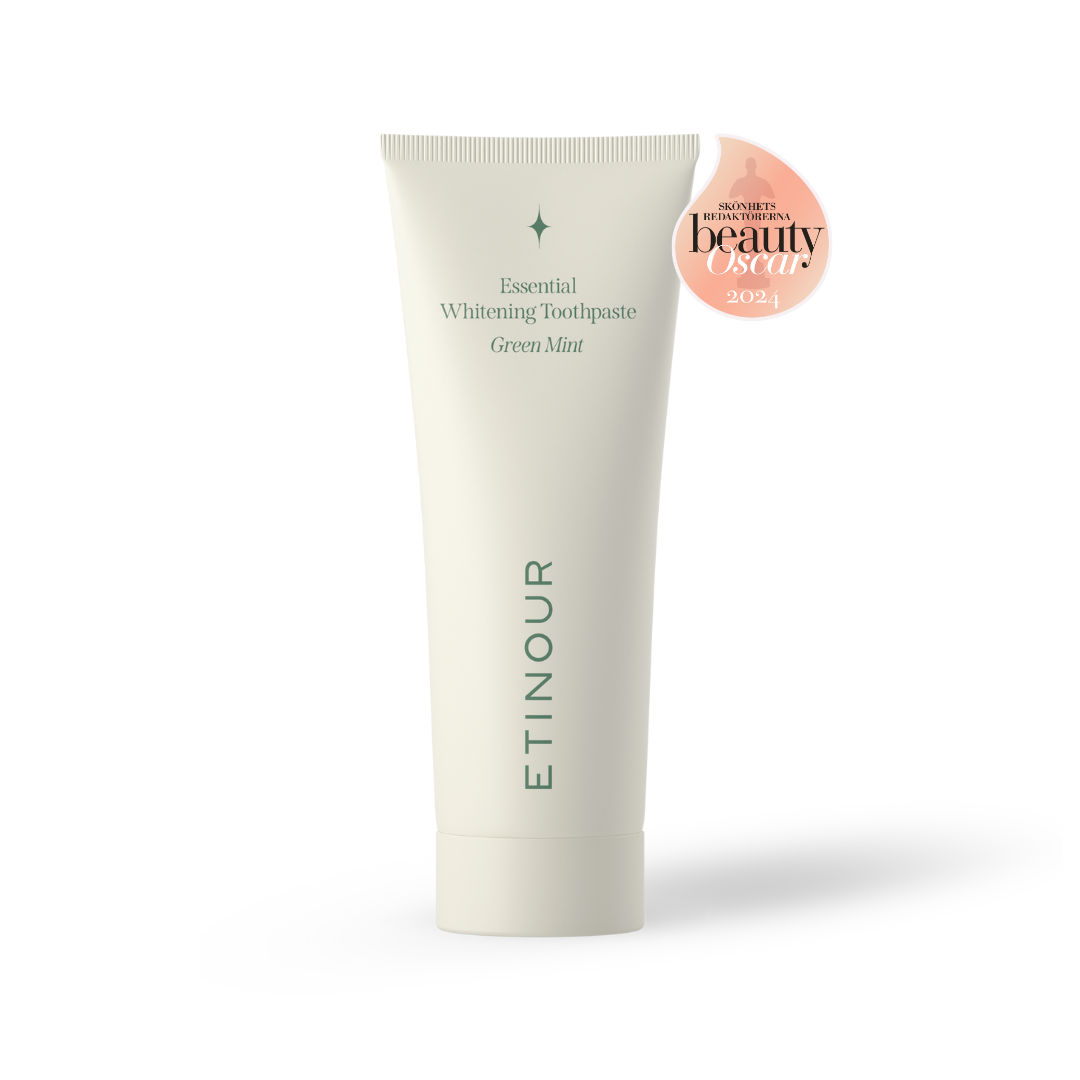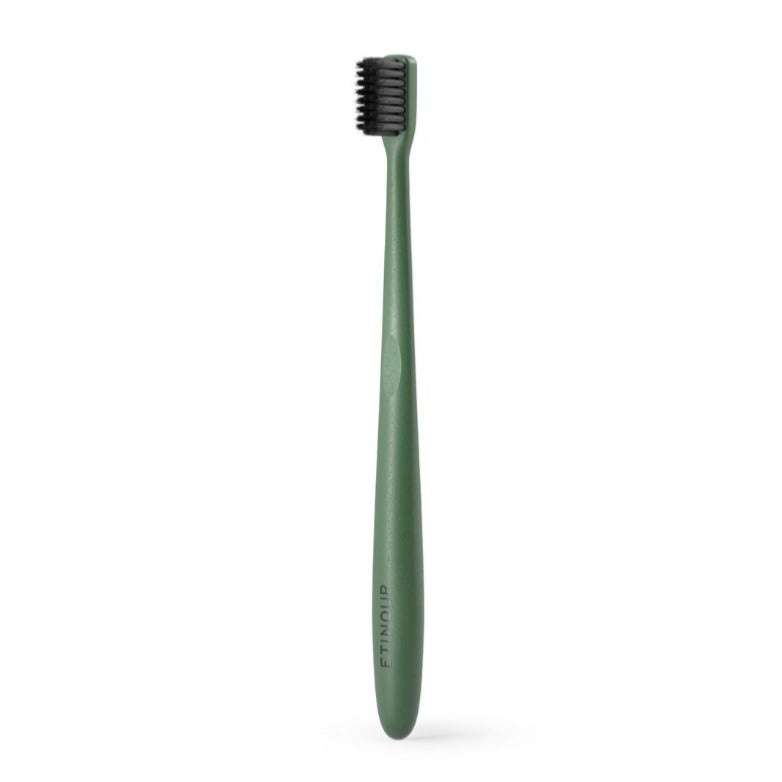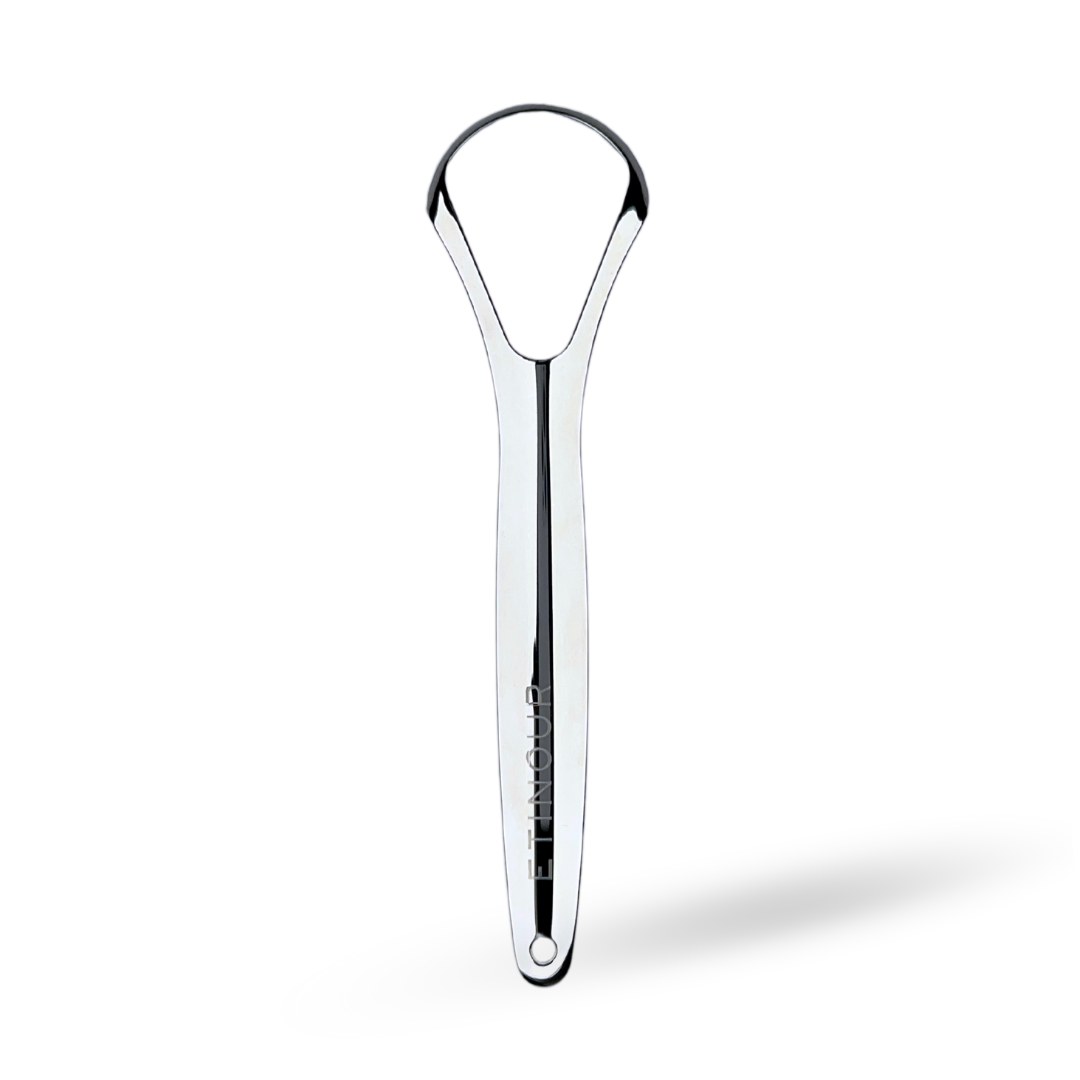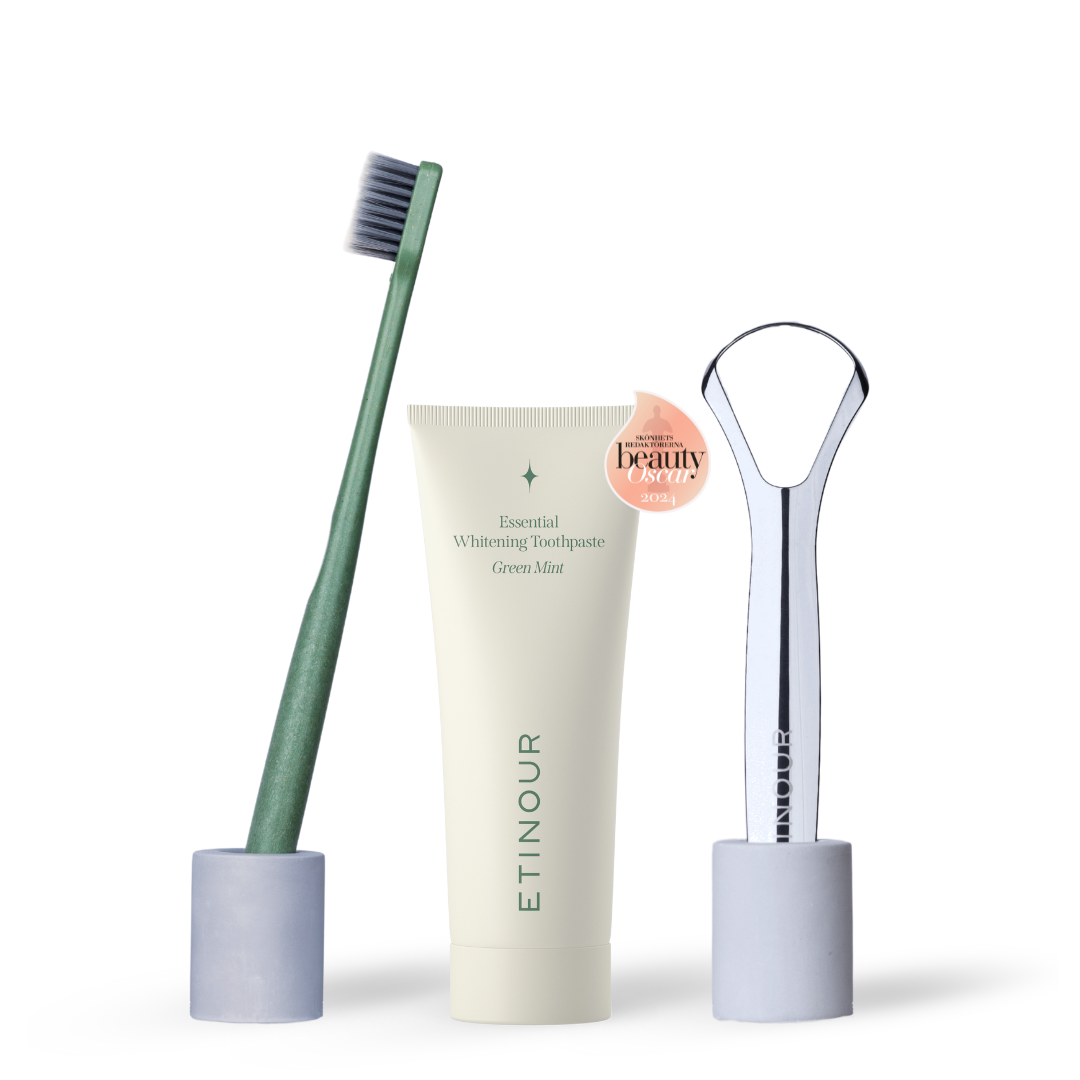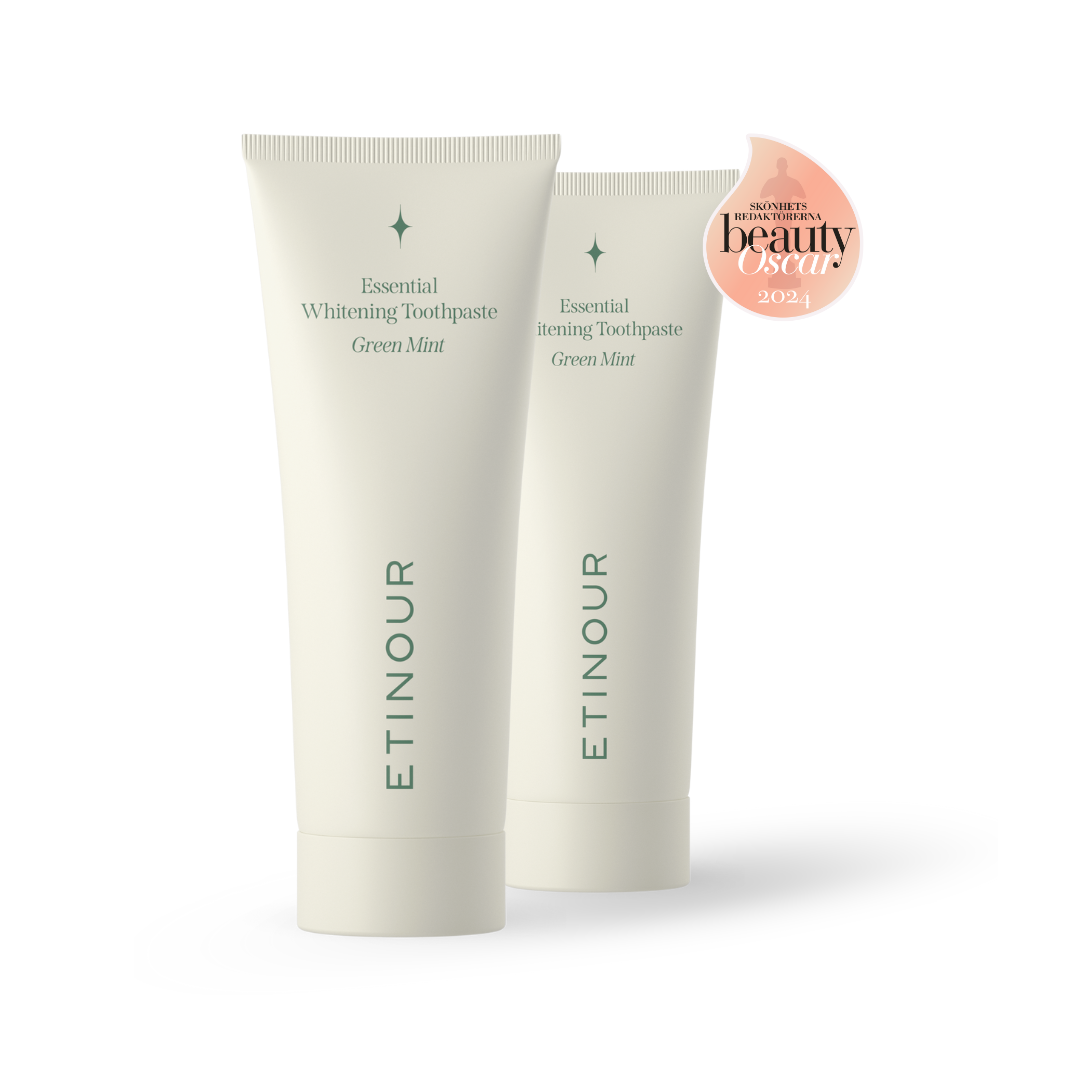This blog post is written in unpaid collaboration between Etinour, and Plume, a Swedish company that manufactures products for expectant and new mothers.
Taking care of your mouth and teeth during pregnancy is important for both you and your baby, but it can easily be overlooked during a hectic pregnancy. Hormonal changes and altered lifestyle habits during pregnancy can affect your oral health, making you more susceptible to issues like gum inflammation (gingivitis). If bacteria are allowed to spread, infections through the gums and teeth can reach your entire body – and even your baby. So what happens to your oral health during pregnancy, and what should you consider?
Pregnancy Gingivitis – What You Need to Know
When you are pregnant, your hormones change, affecting how your body reacts to bacteria and plaque in your mouth. This can lead to pregnancy gingivitis, a form of gum inflammation that is common during pregnancy. The gums often become swollen, red, and may bleed easily, especially when you brush your teeth.Despite the discomfort, it is important to continue brushing your teeth regularly with a soft toothbrush and to clean between your teeth with dental floss. Electric toothbrushes often have harder bristles, so try to find a toothbrush with soft bristles, such as Etinour’s Essential Toothbrush, which is specifically designed for women's smaller and more sensitive mouths.
How Your Child is Affected
Your oral health has a greater impact on your child's health than you might think. Bacteria from an infected mouth can spread through the bloodstream to the uterus and affect the fetus. This can contribute to complications such as premature birth or low birth weight. By taking care of your gums and teeth, you reduce the risk of bacteria spreading to your child.
Visiting the dentist early in your pregnancy, or preferably before you become pregnant, is a good way to prevent problems and ensure that your oral health is in top shape during this important time.
Dry Mouth During Pregnancy
Many pregnant women experience dry mouth and chapped lips, especially at night. This can be due to hormonal changes that affect saliva production. Dry mouth increases the risk of gingivitis and cavities and can also affect your sleep quality. It may also be a sign of dehydration, which is common during pregnancy, so be sure to drink plenty of water.
A tip is to use a nipple cream, such as Plume's new nipple balm, on your lips to prevent and soothe dryness. These creams are gentle and extra moisturizing, and you can also use them after your baby arrives.
Nausea, Vomiting, and Changed Eating Habits
Pregnancy nausea and vomiting are common, and unfortunately, they also affect your oral health. The stomach acid that comes up during vomiting can damage tooth enamel and lead to sensitivity and cavities. A good way to protect your teeth is to rinse your mouth with water right after vomiting, but avoid brushing your teeth immediately – wait at least 20 minutes to prevent further damage to the enamel. If you want to freshen your breath, you can take a little toothpaste in your mouth without brushing, and then spit it out.
Additionally, changed eating habits, such as increased cravings for sweets or snacking, can also impact your teeth. Try to choose sugar-free options and rinse your mouth with water after eating something acidic or sweet.
Ingredients to Avoid in Your Oral Care Products
To prevent and manage symptoms of gum problems, it’s important to choose gentle and remineralizing (strengthening) oral care products. Many common ingredients can cause irritation and worsen gum inflammation, so it’s important to avoid them during pregnancy. Here are some ingredients that often cause sensitivity and irritation in teeth and gums:- Sodium Lauryl Sulfate (SLS): A foaming agent commonly found in toothpastes that can irritate the gums.
- Colorants (both natural and synthetic): These can cause allergic reactions and irritate sensitive mucous membranes.
- Coarse abrasives (e.g., black charcoal): These can be too harsh and damage enamel as well as irritate the gums.
- Hydrogen peroxide-based whitening products: Whitening products containing hydrogen peroxide can cause tooth sensitivity and damage the gums.
- Strong flavoring and fragrance agents (natural and synthetic): These can trigger sensitivity and irritation.
- Endocrine disruptors: e.g., triclosan and certain preservatives.
By choosing gentle and strengthening products, such as Etinour’s toothpaste without SLS and other irritants, and with strengthening ingredients like hydroxyapatite, you create a good foundation for a healthy pregnancy.
What You Can Do – Tips for a Healthy Mouth During Pregnancy:
- 2 x 2 x 2 Rule: Brush your teeth twice a day, using two centimeters of toothpaste for at least two minutes.
- Use dental floss or interdental brushes to reach between your teeth where bacteria can easily accumulate.
- Avoid snacking and try to eat regular meals low in sugar.
- Rinse your mouth with water after vomiting or eating something acidic.
- Wait to brush your teeth after vomiting to avoid damaging weakened enamel.
- Visit the dentist and dental hygienist regularly to ensure your teeth and gums are healthy. Schedule an appointment as early as possible during your pregnancy to prevent any issues.


